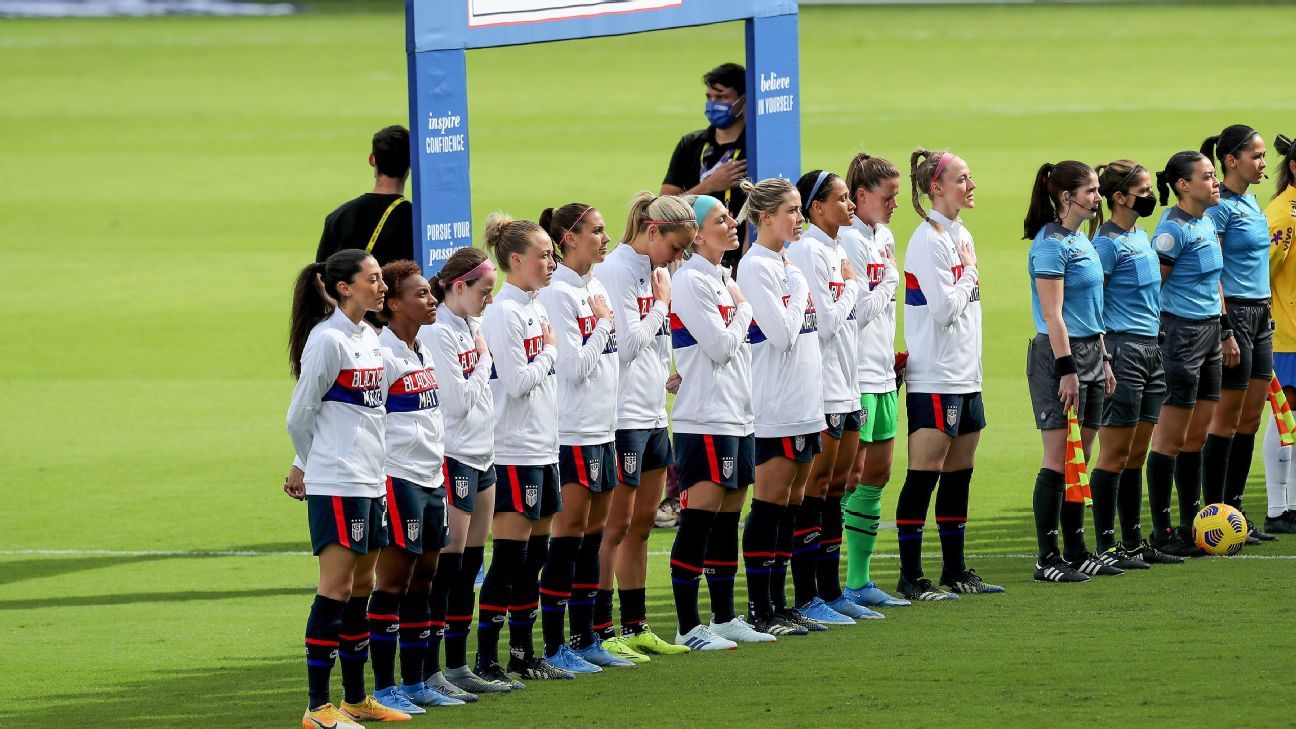
On a day when the United States women's national team stood -- and didn't kneel -- for the playing of the national anthem, U.S. defender Crystal Dunn said that the players are "past the protesting phase and actually move into putting all of the talk into actual work."
- Carlisle: Despite win, USWNT still has some work to do
- Stream ESPN FC Daily on ESPN+ (U.S. only)
- Foudy: What the USWNT needs to do to stay on top
Ahead of Sunday's 2-0 win over Brazil in its second match of the SheBelieves Cup in Orlando, the entire U.S. team stood while the anthem played. As it had in other matches, the team walked onto the pitch wearing wearing warmup jackets with the words "Black Lives Matter" emblazoned on the front.
In the U.S. team's previous match against Canada, some players stood while others knelt. The Canadians, ahead of their game against Argentina on Sunday, all knelt during their national team and wore T-shirts that read "Black Lives Matter."
Dunn said there wasn't a vote taken by the U.S. team to stand, but it was rather a collective decision.
"I think those that were collectively kneeling felt like we were kneeling to bring about attention to police brutality and systemic racism," Dunn said. "I think we decided that moving forward we no longer feel the need to kneel because we are doing the work behind the scenes. We are combating systemic racism. And we never felt we were going to kneel forever, so there was always going to be a time that we felt it was time to stand. I think we're all proud that we are doing the work behind the scenes and it was just a game that we felt we were ready to move into the next phase and just continuously fight for change."
Dunn is one of seven Black or biracial players on the current 23-player roster, but she said she feels that the dynamic within the U.S. side in terms of addressing social justice has improved. There is still more work to be done, however.
"For me personally I've always felt like I'm a testament to a lot of Black experiences," she said. "I am a Black athlete who has often felt like I have not been heard or not been seen and many Black people feel the same way. I think we've had those initial discussions, and I feel better about where this team is. But I do think moving forward, we're prepared to just continue working off the field and continuously having these conversations.
"Even though we are choosing to stand, it doesn't mean that the conversations go away, or they stop," Dunn added. "It's all to say that we are now, I think, ready to move past the protesting phase and actually move into putting all of the talk into actual work."















 Phone: (800) 737. 6040
Phone: (800) 737. 6040 Fax: (800) 825 5558
Fax: (800) 825 5558 Website:
Website:  Email:
Email: 






